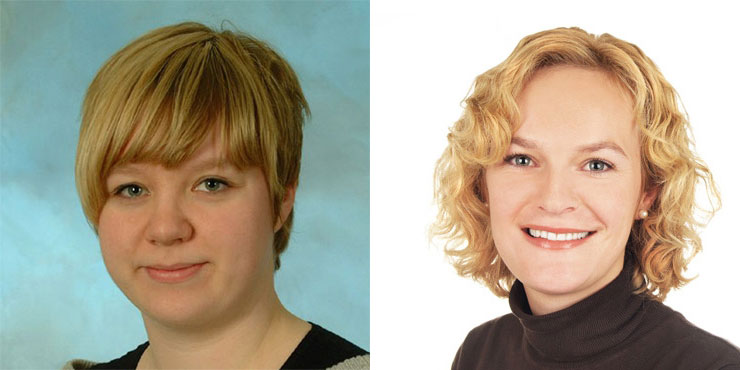The G1/S checkpoint in fission yeast is not a general DNA damage checkpoint

Marit Krohn and Henriette C. Skjølberg in Erik Boye's group at Department of Cell Biology share first-authorship on a recent article published in Journal of Cell Science (impact factor 6.5). In this work they characterise a checkpoint, which are mechanisms that regulate progression of the cell cycle. The vast majority of cancer cells have defective checkpoints, emphasizing their loss of cell-cycle control. In their paper the two authors describe fascinating new properties of a novel checkpoint discovered recently by the same group (Tvegård et al, 2007).
Classic checkpoints arrest the cell cycle whenever the DNA is damaged. This novel checkpoint responds only to certain types of DNA damaging agents, but not all. For example, fission yeast cells irradiated in G1 phase by ultraviolet light are arrested before they start DNA replication (S phase). However, ionising radiation does not arrest cells in G1.
The authors conclude that the novel G1/S checkpoint is not a general DNA-damage checkpoint. The hunt goes on to identify the molecular damage that induces the checkpoint as well as the pathway of induction.
Links:
Krohn, M., Skjølberg, H. C., Soltani, H., Grallert, B. and Boye, E. (2008).
The G1-S checkpoint in fission yeast is not a general DNA damage checkpoint. (link to Pubmed)
J Cell Sci. 121, 4047-54
Tvegård, T., Soltani, H., Skjølberg, H. C., Krohn, M., Nilssen, E. A., Kearsey, S. E., Grallert, B. and Boye, E. (2007).
A novel checkpoint mechanism regulating the G1/S transition. (llink to PubMed)
Genes and Development 21, 649-654.
